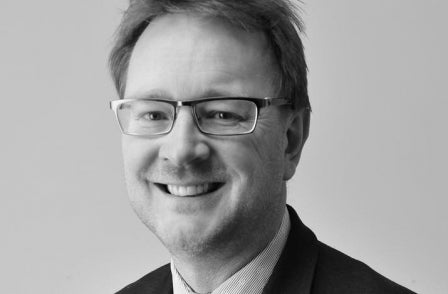
Johnston Press has cut the cost of servicing its debt by £20m a year and will be using part of the money to invest in journalism, its chief executive has said.
Over the last five years, the company has been "effectively working for the banks" Ashley Highfield told Press Gazette. He believes JP's £360m refinancing package will ensure "comparative security" and "five years to grow the business".
He was speaking after shareholders yesterday voted in favour of the refinancing scheme, which is expected to raise £220m through issuing bonds and a further £140m by issuing and placing shares.
Because of the scheme, the company's debt has been cut by a third from £300m to £200m. Highfield said that the cost of servicing the company's debt will go from somewhere in the high-£30ms (at a 12 per cent interest rate) to somewhere in the high-£10ms (at a 9 per cent interest rate), meaning JP will be saving £20m a year in interest payments on its debt.
And Highfield said the company has set aside around £7m for capital expenditure, which will “mainly” be used to invest in the journalism side of the business.
On the existing £300m debt, Highfield told Press Gazette: “You can’t underestimate that really. We’ve been effectively working for the banks for the past five years. And [we] now have them off our backs.
“It’s not just the interest rate that’s tumbling and the amount of debt that we have to pay interest on that’s tumbling, it’s also not having the very stringent quarterly covenants that the banks had over us that meant our strategic flexibility was very limited.”
The company’s £220m bond is not repayable until 2019, and Highfield described this as five years of “comparative security” and “five years to grow the business”, which is “not that far away from top-line growth”.
Asked how the extra £20m a year would be used, Highfield revealed that JP is planning to invest in journalism as well as paying off its debts.
“We are focused on continuing to pay down the debt, that is for the long-term security of the company,” he said.
“But at the same time, I want to start investing more in the business.
“We’ve got a plan to invest around £7m in capital expenditure, which will cover a variety of things, but it will mainly be around delivering and building new technologies and services, like new websites.
“And I don’t want to pretend that we don’t need to continue to make efficiency savings. Every business does, and we will continue to do that.
“But this does mark a point where we can start invest more in the company. At the same time, I want to get our debt down even further.”
In March 2012, Highfield unveiled an eight-year plan to pay back the company’s then £351.7m debt mountain and return to growth.
Two years ago, the company’s profit margin stood at 17 per cent, and the chief executive said he believed he could double this by pursuing a digital-first strategy, changing dailies to weeklies, launching a range of mobile apps and replacing a number of staff journalists with ‘citizen journalists’ and freelances.
Today, he suggested the business is on track for doubling its profits, but said the way to get there is constantly under review.
He added: “I think the core vision, which is we want to be the number one provider of news and information in the communities we serve, we want to be the number one provider of advertising and marketing solutions for small-to-medium size advertisers, that hasn’t changed. And in some ways that hasn’t changed since 1705.
"I think it’s been quite good that we’ve said look, our purpose, our goal, our overall direction and mission is still the same.”
Email pged@pressgazette.co.uk to point out mistakes, provide story tips or send in a letter for publication on our "Letters Page" blog
